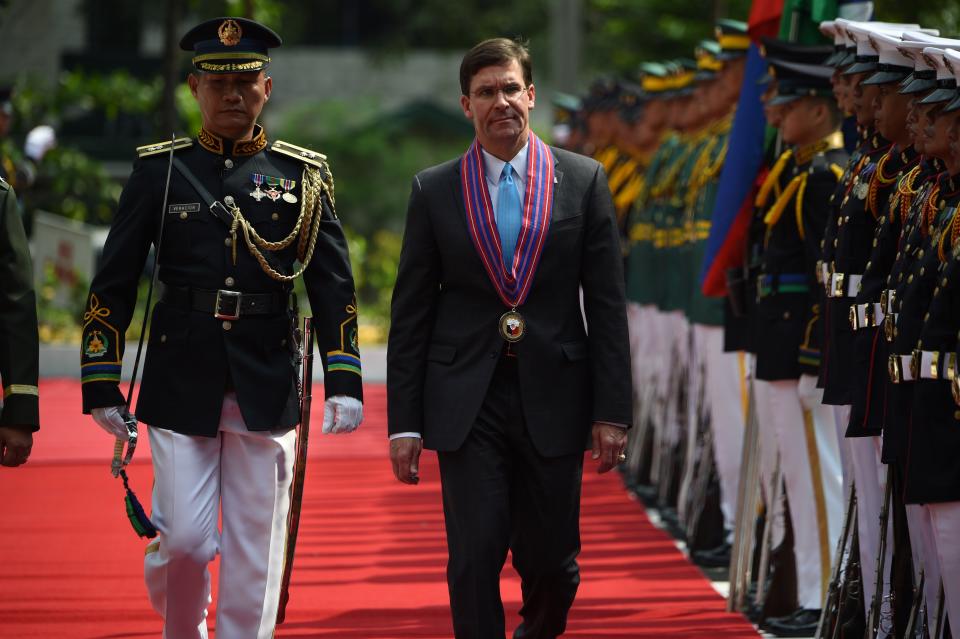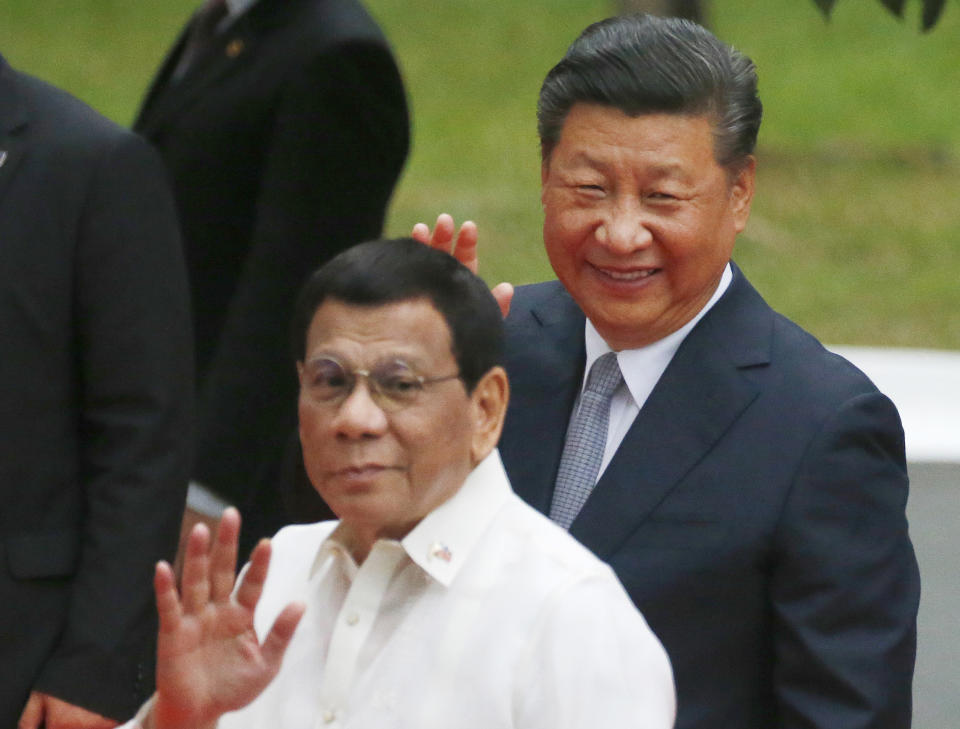U.S. Says Duterte’s Move to Scrap Defense Pact is ‘Unfortunate’

By Andreo Calonzo and Philip J. Heijmans
The U.S. said the Philippines’ move to terminate a 22-year-old military agreement, which can be ended with 180-days notice, was “unfortunate” as it tries to bolster its presence and compete with China in the Asia-Pacific region.
Scrapping the 1998 Visiting Forces Agreement – which sets the terms for joint exercises and engagement of American soldiers in the Philippines – would be the first concrete step by the Philippines to cut defense ties with the U.S.
Pentagon chief Mark Esper said Wednesday it was “a move in the wrong direction” for the “long-standing relationship” between the two countries and for the Philippines’ strategic location.

It’s a shift that President Rodrigo Duterte had signaled since his six-year term started in 2016 as he realigned his foreign policy toward China. The Philippines and the U.S. signed a mutual defense treaty in 1951 which binds the nations to defend each other, if attacked.
“Trump, and the others, are trying to save the Visiting Forces Agreement,” Duterte said in a speech in Manila on Monday night referring to the U.S. president. “I said, I don’t want it,” he said according to the official transcript.
Rodrigo Duterte, the Philippines' president, left, arrives for Emperor Naruhito's enthronement ceremony at the Imperial Palace in Tokyo, Japan, on Tuesday, Oct. 22, 2019. Japan completed the months-long coronation of Emperor Naruhito in an elaborate ceremony in Tokyo, as assembled global royalty and political leaders looked on.
Win for China

Scrapping the military deal will bring the Southeast Asian nation closer to China, as U.S. support for Philippine military will likely be reduced, said Malcolm Cook, senior fellow at ISEAS-Yusof Ishak Institute in Singapore.
“As with many other decisions made by President Duterte, China appears to be the biggest winner and Philippine external security the biggest loser,” Cook said.
The Philippines may find it difficult to access millions of dollars in military aid, and trade relations may also be hurt once the pact is terminated, Foreign Affairs Secretary Teodoro Locsin said last week. Joint military activities -- including training for thousands of Philippine and American soldiers -- will also be severely curtailed, he added.
The 74-year-old Duterte revived his threats to end the military pact with the America last month after the U.S. canceled the visa of his former police chief who oversaw his deadly drug war. Duterte said the nation’s military ties with the U.S. didn’t solve the decades-long communist insurgency.
The Philippines’ leader has previously questioned whether the U.S. would defend the Philippines if China seizes disputed shoals and reefs in the South China Sea -- skepticism that has persisted in the Southeast Asian nation for decades. Beijing has built several artificial structure in the Spratly Islands where Manila also has claims. Philippine fishermen and vessels resupplying Philippine-occupied features in the waters have also been harassed by Chinese ships.
© 2020 Bloomberg L.P.


